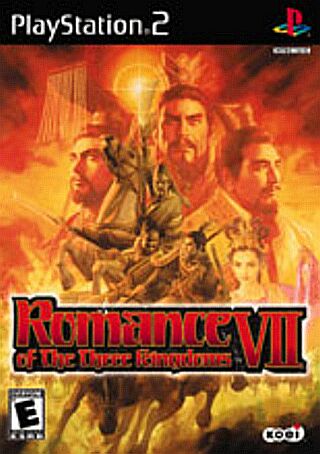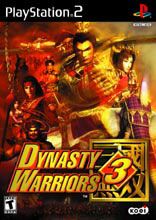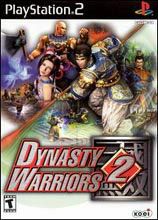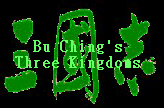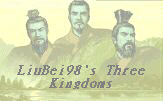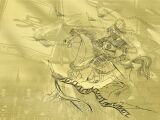

Fansite for Romance of the Three Kingdoms

RTK7 ENGLISH PS2!
Click and preorder now!
DYNASTY WARRIORS 3
Order now!
DYNASTY WARRIORS 2
Order now!
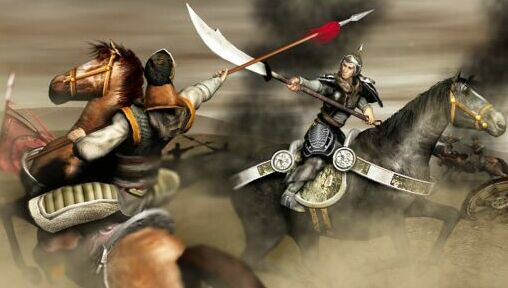
The Mongols were not a unified people during the age of Later Imperial Han in China. In fact, at best the Mongols themselves were a nomadic people, and clanistic. Due to the fact that the Gobi Desert which they lived in was rather obscure and unexplored by the Chinese, the Mongol people were not known until quite some considerable time. The Great Wall of China was not intended to keep the Mongols away from China, but it was built to keep away the other fledgling tribal nations we can see in the RTK series of games.
Although we can't throw away the fact that the rise of Temujin ( aka Genghis Khan ) did start off one of the bloodiest periods in history. Despite this fact, the rise of Genghis Khan did not happen until the 12th century. This is at least one thousand years after the Later Imperial Han.
There are several versions of the stories behind Genghis Khan. Unlike the story of Romance of the Three Kingdoms, the saga behind Genghis Khan is more based from Mongolian legends and true to the heart storytelling. Several books are of course written to show the exploits of the Mongol Emperor, however there has been no novels or scriptures from the past, giving us the full detail of Genghis Khan. Most books you read about him will have tons of other resources to fall upon, because the Mongol influence was so vast, but so finite in time. The Mongol Empire was in fact the largest dominion ever in the history of humankind. However, it did not last more than a century at best.
Karakorum, was the seat of Genghis Khan's rule. It was also the first "permanent" settlement of the Mongol culture. Genghis Khan in all his glory never lived in a grand palace. He rather fancied the traditional Mongolian tents, which at Karakorum was fashioned a rather huge tent probably larger than the "Big Top" circus tent. Indeed though his home was not a farce, but decorated with riches and trophies of his conquests. Although Genghis Khan was not interested in wealth. His ambition was to rule the Earth in all it's entirety. In respect to his dream, Genghis Khan may have not accomplished his goal, but he had made a humongous impression in most of the known world then, and even today.
The word Khan, really is a Turkish title which stands for Chief. At greater lengths, sometimes Chinese officials would recognize tribes north of the Great Wall with "honorary titles", if and when tributes were paid to the Chinese courts. There is a story of Genghis Khan which mentioned when he became a "prisoner" of one of the Chinese emperors ( I believe at the time there was a Northern and Southern dynasty, plus another smaller one up in Manchuria ). This emperor was fond of Temujin ( Genghis Khan ), and wanted to keep him in his city, kind of like a master and his pet. When this emperor was attacked by the other dynasty, Temujin turned away the invaders. Supposedly this emperor then granted him the title, Khan, which the term Khan became synonymous with the word Prince or King, of course as well as indicated that he was still less than the Emperor. Another story mentions that when Temujin escaped from the Emperor, returned to his people, and unified the tribes, he was given by his own people the title Genghis Khan, meaning Great Chief or Great Prince by the Chinese.
The story behind Temujin's escape from the Emperor is intriguing. Probably based more out of legend than fact, supposedly Temujin made his escape upon the victory celebration held after the defense of the Emperor. Since Temujin was a prisoner of sorts, he had the right however to roam about in the city. He inquired about a strange black powder, which he found out was used for holidays. Temujin experimented with the powder in a pottery jar, and realized it's explosive nature. He went before the Emperor, and told him he wanted to give the Emperor a "celebration he would never forget". The Emperor agreed, and Temujin collected all the black powder he could, and organized the entire capital for the Emperor's surprise. His gift was a display of fireworks. When the show began, the Emperor was so impressed, he wanted to see more. So Temujin led the Emperor towards the north city gate, which was lined with all kinds of fireworks, and huge pots of nothing but black powder disguised within the shadows of the night. The show lit off, and the Emperor stood before the gates, all in amazement. Then Temujin ignited a trail of powder leading to the large pots, causing the entire gate to explode off it's hinges, toppling over the Emperor. Amidst the chaos of the celebration, Temujin stole a horse and rode back to the Gobi Desert. the next time the Chinese saw Temujin, was when he became Genghis Khan, and returned to conquer. This is when the term of Khan, became synonymous with Emperor, now as Great Emperor.
The Mongol Empire in its entirety stretched from Chosun ( Korea ) all the way across to the edges of Judea ( Jerusalem ). After Genghis Khan's death, his sons continued the legacy and expanded the greater Mongol Empire's boundaries. Northern parts of the Southeast Asian region, India, the Middle East, Siberia, Russian Principalities, and Eastern Europe as far as Hungary and Poland, have all felt the influence of the Mongols in one shape or form. This huge expanse was said to involve so many cultures at one time, that Rome itself had never seen. However, the ideals of a greater Mongol Empire pretty much died when his grandson, Kublai Khan, came to power. Kublai Khan was very fascinated with the Chinese culture, and so focused his power there. For the first time after many centuries of turmoil, Kublai Khan unified all of China in the 13th century. He moved the Mongol capital from Karakorum to Peking, disturbing many within his court. Eventually he enforced Mongol retainers to adopt everything which was Chinese, even made arranged marriages of Mongol officials with Chinese and Korean nobles. It was a time for Chinese prosperity, but a time for Mongol despair. The Mongolian culture was fading with Kublai Khan, and this caused a rift within the greater Mongol Empire. Kublai Khan eventually forgot altogether his heritage, and the rest of the Empire was divided amongst those who claimed Genghis Khan's ancestry, and others who were born from Genghis Khan's most loyal of retainers.
One of the most prominent branches of the Mongol Empire was called The Golden Horde. The Golden Horde was established by one of Genghis Khan's grandsons, Batu. At one point Genghis Khan gave more power to his generals, allowing them to find their own destinies. In exchange, they all pledged their undying loyalty to Genghis Khan, and upheld his law called the Yassa. Batu, one of the greater of Mongol leaders, led his armies past through the Urals, and invaded the Russian Princes. The regions were cold, but the Mongol were used to harsh winter from their native Gobi Desert. The conquest and vassalization of Moscow, ensured their dominion, and ruled in the name of Genghis Khan. Noted for their armored dress, the Golden Horde became one of the more wealthier Mongol branches. At one period the Golden Horde held dominion from the Crimea all the way up to Novgorod, bordering countries such as Sweden, and Lithuania. At one point the Mongols went as far as Hungary and Poland. To this day, the Hungarian people call themselves Magyars, whom are descendants of eastern Europeans who have intermarried with Mongols. It is to amazement this day why many historians and linguist wonder about the origin of the Magyar language, since it's forms of speech are so unique and unlike other European dialects.
Sure enough, the world will study that the Roman Empire was probably the strongest and most established of all empires. However, I would rather argue that Chinese themselves indeed have the oldest culture in human existence. Also in light of this, it's my personal opinion that the Mongol Empire was indeed the largest ever of established dominions in the world.
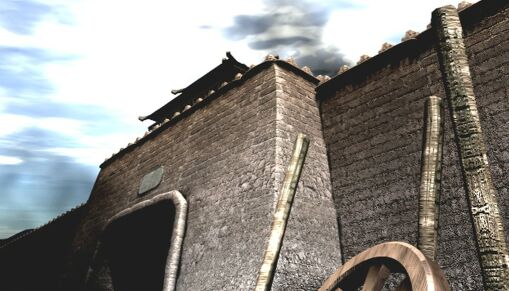
RTK RELATED LINKS:
Kong Ming's Archives
Sanguo Online Community
Romance of the Three Kingdoms Frontier
Sain Cai's Five Tigers
The Golden Horde Forum
Bu Ching's Three Kingdoms
LiuBei98's Three Kingdoms
Romance of the Three Kingdoms Web
The Peach Garden




